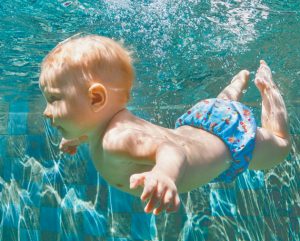By F. Scott Pauzar, III, Naples Personal Injury Attorney
 According to a report from the Florida Department of Health, Florida has one of the highest rates of preventable drownings in the country. While some accidental drownings occur on our lakes and inland waterways, many occur in pool drowning—including swimming pools in people’s backyards.
According to a report from the Florida Department of Health, Florida has one of the highest rates of preventable drownings in the country. While some accidental drownings occur on our lakes and inland waterways, many occur in pool drowning—including swimming pools in people’s backyards.
If you have a swimming pool, it is important to ensure you are doing everything required to keep visitors to your home safe. While you might not be able to stop trespassers from swimming in your pool when you aren’t home, there are steps that you can (and should) take to minimize the risk of drowning for your visitors.
Pool Safety Requirements and Homeowner Liability Under Florida Law
Florida’s Residential Swimming Pool Safety Act establishes specific safety requirements for home swimming pools. Under the law, “a residential swimming pool must meet at least one of the following requirements” to pass inspection:
• The pool must be surrounded by an enclosure that meets Florida’s “pool barrier requirements;”
• The pool must be equipped with an approved pool safety cover;
• All doors and windows that provide direct access to the pool must be equipped with an approved exit alarm;
• All doors providing direct access to the pool must be equipped with a self-closing, self-latching device with a release mechanism at least 54 inches above the ground or,
• The door must be equipped with a swimming pool alarm that detects accidental or unauthorized entrance into the water.
Importantly, however, even if a homeowner complies with the Residential Swimming Pool Safety Act, this doesn’t necessarily mean that the homeowner is immune from liability in the event of an accidental drowning. Homeowners can be held liable for other forms of negligence as well, including (but not limited to):
• Failing to keep the pool clean (in particular, failing to remove debris from the surface of the water that could obscure the view of someone below)
• Failing to keep pool water properly treated and maintain pumps and other pool equipment in good working order
• Failing to install drain covers or take other protective measures to prevent entrapment below the water
• Failing to adequately monitor children who are swimming
• Providing alcohol to minors who are swimming
Again, these are just examples. When a homeowner is deemed negligent, the homeowner can be liable for an accidental drowning in the homeowner’s pool. While accidental drowning claims may be covered under the homeowner’s insurance policy, a homeowner’s coverage might not be enough to fully cover the financial and non-financial losses suffered by the victim’s family.
Speak with a Lawyer about Pool Drowning Liability
If you need to know more about Florida’s Residential Swimming Pool Safety Act or have questions related to homeowners’ liability for accidental drownings in swimming pools in Florida, we invite you to get in touch. To speak with a lawyer at our offices in Naples or Marco Island in confidence, please call 239-649-6555 or tell us how we can reach you online today.
Request a Free Consultation at Woodward, Pires & Lombardo, P.A.
Do you need to know more about your legal rights after a product-related accident in Florida? If so, we invite you to get in touch. To request a free consultation with a lawyer at Woodward, Pires & Woodward, P.A., please call 239-649-6555 or get in touch online today.
About the Author
F. Scott (“Scott”) Pauzar, III is a litigation and personal injury law attorney in Woodward, Pires & Lombardo’s Naples office. He has a broad base of legal knowledge and skills cultivated through over 19 years of experience as a litigator in complex litigation in both state and federal courts. Previously, Scott was an Assistant State Attorney at the 20th Judicial Circuit State Attorney’s Office in Fort Myers. During his five years as a Prosecutor, Scott conducted over 30 jury trials. After leaving the Office of the State Attorney, Scott served as an insurance defense attorney for 11 years, where his practice focused on litigation of complex cases and catastrophic injuries. Scott now combines his jury trial and defense experience to successfully represent his clients in litigation and personal injury law matters.
Scott is a military veteran, having served on active duty in the United States Air Force between 1989 and 1993. He is a native of Naples, Florida. Scott received his Bachelor of Arts degree from Jacksonville University in 1996 and his Juris Doctor from the University of Nevada, Las Vegas, in 2004. He is a member of The Florida Bar, and is admitted to practice in the U.S. Middle District and U.S. Northern District of Florida.
Woodward, Pires & Lombardo’s Naples
Naples Office:
3200 Tamiami Trail N, Ste 200
Naples, FL 34103
239-649-6555
Marco Island Office:
606 Bald Eagle Dr, Ste 500
Marco Island, Fl 34145
239-394-5161










